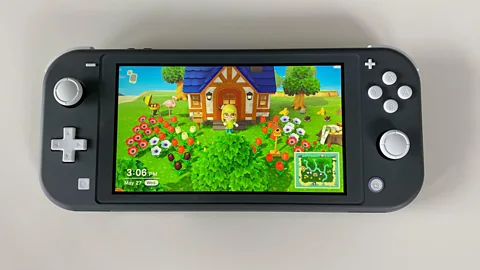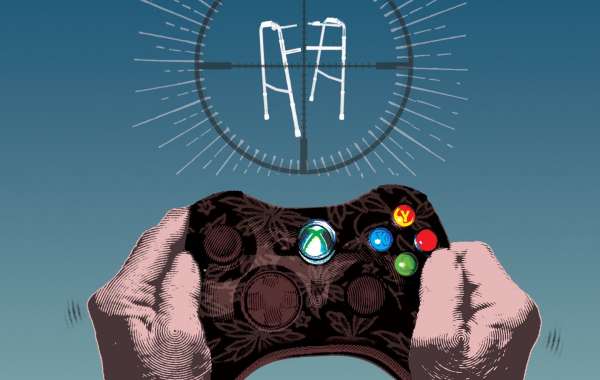“Our entire lives have led up to this,” my friends joked with me in mid-March.
I was sitting in my tiny New York City apartment, panicky and coming to terms with the reality that I’d be trapped inside for weeks, potentially months. But my friends reassured me that as lifelong video game enthusiasts, the prospect of sitting on a sofa in front of a TV for an interminable stretch would be a cakewalk. After all, gamers like me do already spend plenty of time in front of our screens all on our own.
But even sitting alone for hours, gamers aren’t necessarily isolated. In many cases, far from it. With the rise of social media, gamers – particularly in Gen Z – have perfected the art of building communities in and around video games. Gamers don’t just compete with strangers on the internet, but forge genuine, enduring friendships.
In this age of long-haul social distancing and mental-health strains, gamers have long had a tool that’s now bringing some relief to those who’ve never picked up a controller before. The explosive growth of gaming during the pandemic has shown that many have found a new outlet for much-needed connection in isolation.
 Alamy
AlamyWhen shelter-in-place orders came down, millions of people around the world turned to tech-fuelled diversions to stay in touch with family and friends, like Netflix Party film viewings, Zoom chats and video games.
There’s the outer-space saboteur mobile game Among Us (which 100 million people have downloaded); and the Jackbox games that mix video chatting and elements of classics like Pictionary, and that have acted as stand-ins for in-person happy hours. Perhaps the most well known is Animal Crossing: New Horizons. Released in March, Nintendo’s record-breaking Switch game that tripled the company’s profits drops players in a tiny tropical town filled with talking anthropomorphic animal neighbours who help them redecorate their home, catch butterflies and grow fruit trees.
Gaming has skyrocketed during the pandemic, reaching people who’d play every now and then, or even those who had previously snubbed it entirely. In the US alone, four out of five consumers in one survey played video games in the last six months, according to a new study by NPD, an American business-research firm. And at a time in which many industries are in dire straits, sales in gaming are booming. Global revenue is expected to jump 20% this year to $175bn (£130bn).
But although the concept of socialisation in a game is new to many, video game enthusiasts have been using tech like this to build friendships online and stay connected for years.
Mark Griffiths is a professor at Nottingham Trent University who’s written about gaming friendships in the pandemic, and studied socialisation in video games for decades. In 2003, he published a study that showed a quarter of 11,000 players of the online role-playing game Everquest said their favourite part of the game was connecting with other players. He says the study was a direct and early contradiction of the stereotype that video games are isolating, and gamers antisocial (even though those early pandemic memes jokingly played off those stereotypes). In another study from 2007, he looked at 912 players of massively multiplayer online (MMO) role-playing games from 45 countries who played on average around 22 hours a week, concluding that the online game environment was “highly socially interactive”.
He says, “Ten percent of those in the survey actually ended up forming romantic relationships outside of the game... The idea of socialising in a game is not new at all.” Fast forward to 2020, and Griffiths says that when lockdowns began and people had nothing much to do, “maybe they’re gaming for the first time, and they realised this was an outlet you can naturally socialise in”.
 Alamy
AlamyFor example, in Animal Crossing, players can visit the towns of both real-life friends or strangers who share their village code online. Flying on a virtual seaplane into my brother’s village, filled with friendly koalas, has become our 2020 ritual as he continues to isolate from Washington, DC, and we miss family holidays. I also visit friends scattered all over the world, including one from secondary school whom I haven’t seen since 2000.







